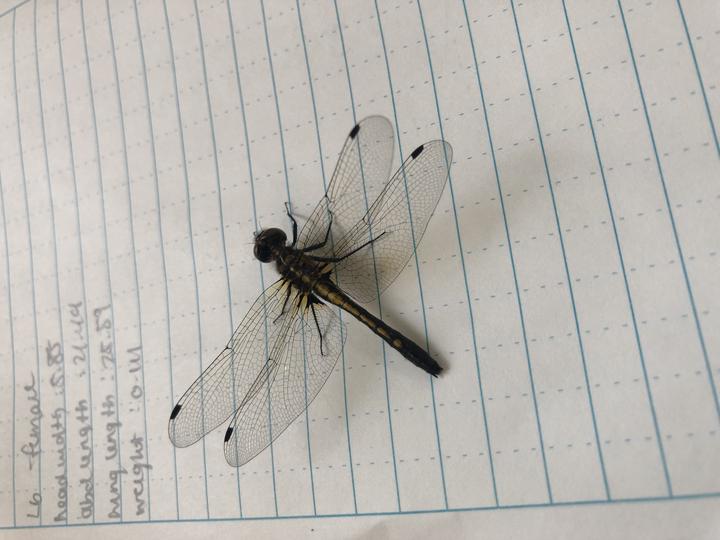Developmental and behavioural responses to road salt pollution across life stages in a semi-aquatic insect

Abstract
The salinization of freshwater habitats from winter road salt application is a growing concern. Understanding how taxa exposed to road salt run-off respond to this salinity exposure across life history transitions will be important for predicting the impacts of increasing salinity. We show that Leucorrhinia intacta Hagen, 1861 (Odonata: Libellulidae) dragonflies are robust to environmentally relevant levels of salt pollution across intrinsically stressful life history transitions (hatching, growth, and metamorphosis). Additionally, we observed no carry-over effects into adult dragonfly morphology. However, in a multiple-stressor setting, we see negative interactive effects of warming and salinity on activity, and we found that chronically warmed dragonfly larvae consumed fewer mosquitoes. Despite showing relatively high tolerance to salinity individually, we expect that decreased dragonfly performance in multiple-stressor environments could limit dragonflies’ contribution to ecosystem services such as mosquito pest control in urban freshwater environments.